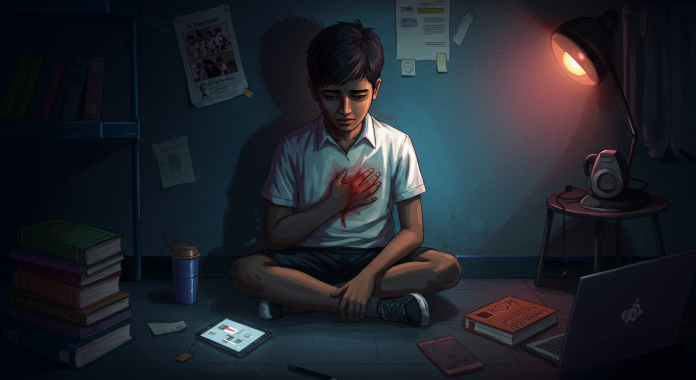A recent report from the Global School-Based Student Health Survey (GSHS) 2024, conducted in Sri Lanka, has shed light on alarming trends in adolescent mental health, raising urgent calls for action from health experts and policymakers. The survey, a collaborative effort between Sri Lanka’s Ministry of Health, Ministry of Education, and the World Health Organization (WHO), assessed the health behaviors of 3,843 students in grades 8-12 across 40 government schools, with a focus on those aged 13-17.
The findings revealed significant mental health challenges among Sri Lankan adolescents. According to the report, 22.4% of students reported feeling lonely over the past 12 months, while 11.9% experienced sleep difficulties due to excessive worry. Depression was noted in 18% of respondents, with higher prevalence among the 16-17 age group. Additionally, 7.5% of students said they had no close friends—a notable increase from the 2016 survey—pointing to growing social isolation.
Perhaps most concerning is the rise in suicidal thoughts and behaviors. The survey found that 15.4% of adolescents had contemplated suicide, up from 2016 figures, while 9.6% had made plans to take their own lives, and 9.1% had attempted suicide.
Dr. Chiranthika Vithana, Consultant Community Physician at the Family Health Bureau’s Adolescent & Youth Health Unit, emphasized the critical nature of these findings. “Adolescence is a pivotal time of transition, but the still-developing brain makes young people more vulnerable to mental health struggles and risky behaviors. These issues, if unaddressed, can have lifelong consequences,” she said.
The report attributes some of these trends to factors such as excessive mobile phone use—28.4% of students reported using their phones for three or more hours daily—and a decline in supportive social connections. Only 25% of students felt they could talk to someone about their worries, and just 7.9% said they could confide in adults at school, such as teachers or counselors. Engagement with peers and parents also appears to be waning, with only 45.6% finding peers helpful (down from 2016) and 44.5% feeling that their parents understood their concerns.
In response to these findings, the GSHS 2024 recommends a multi-faceted approach to address the crisis. Key suggestions include strengthening mental health education within school curricula, training teachers and counselors to recognize early signs of distress, and developing suicide prevention strategies. The report also calls for anti-bullying policies, including measures to tackle cyberbullying, and improved access to adolescent mental health services and helplines. Community and parental engagement are highlighted as essential to fostering a supportive environment for young people.
The survey’s conclusions urge immediate, evidence-based action to reverse these troubling trends.
(If you need mental health assistance, call 1296 – the 24/7 hotline of the National Institute of Mental Health (NIMH))





